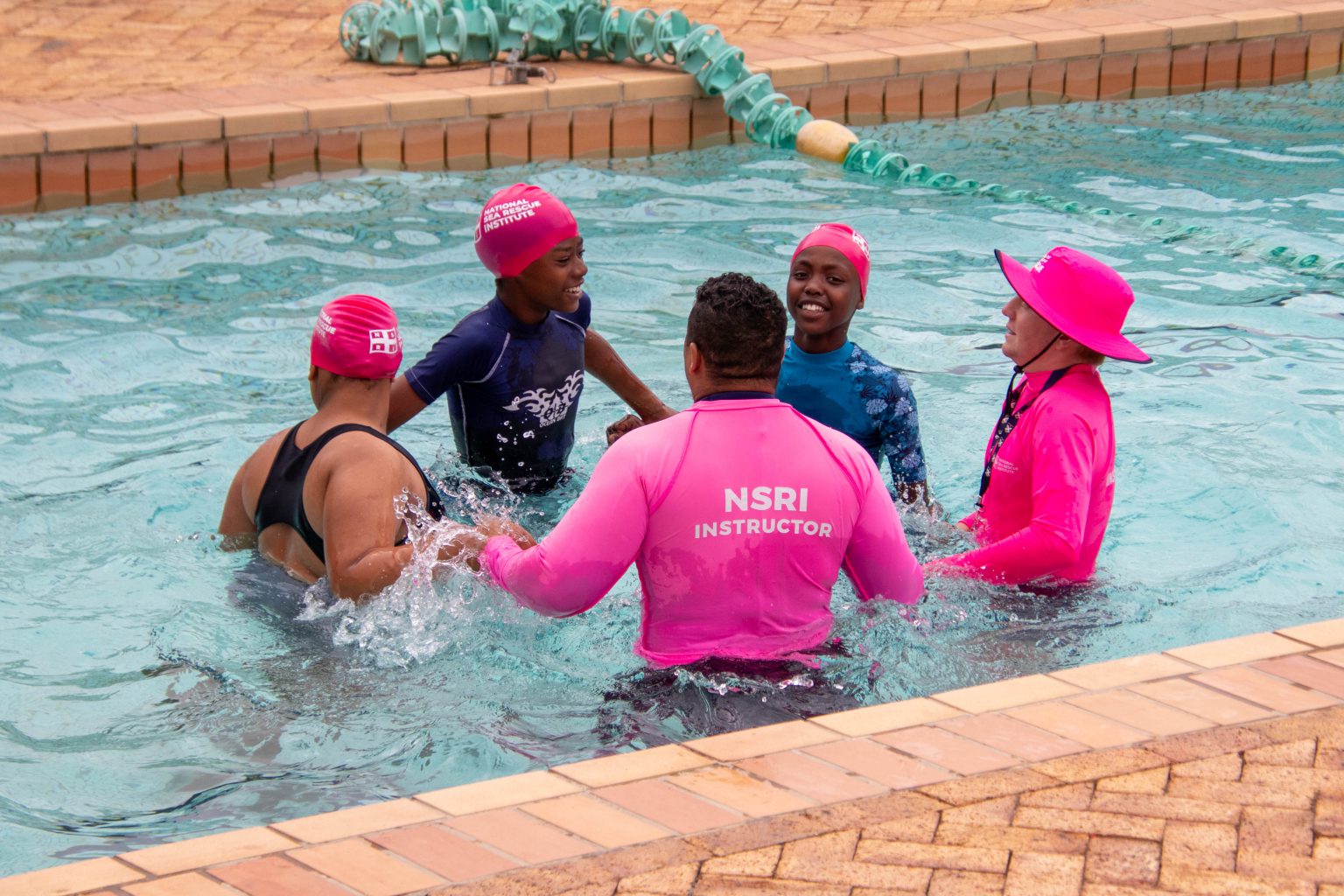By Ncumisa Mzaza
On Saturday, 19 October 2024, St Andrew’s College officially launched its Survival Swimming Programme in collaboration with the National Sea Rescue Institute (NSRI) at the DT Hudson Pool Complex.
This vital initiative responds to the high drowning rates in the Eastern Cape, where children are especially vulnerable. The programme is designed to equip young pupils with essential water safety and survival skills.
Background and Development
The partnership between St Andrew’s College and the NSRI began when Oliver Hutton, a Grade 10 pupil at St Andrew’s, volunteered as an instructor for NSRI’s Pop-Up Survival Swimming Sessions in Kenton on Sea in late 2023. Recognising the need for a local initiative in Makhanda, Oliver collaborated with the school’s Community Engagement Office, led by Ncumisa Mzaza.
Mzaza had previously volunteered with the NSRI’s Water Smart Programme. Additionally, Mr Grant Mackenzie, Director of Water Polo and Swimming at St Andrew’s College, contributed significantly by donating over 150 swimming costumes for the programmes in Kenton on Sea and Port Alfred. These combined efforts laid the foundation for bringing the programme to Makhanda.
This initiative stems from a shared belief in the profound impact survival swimming education can have on the Makhanda community and surrounding areas. With the Eastern Cape having the second-highest drowning rate in South Africa, this programme offers a crucial intervention.
Event Overview
The launch event brought together 45 Grade 5 and 6 pupils from Good Shepherd School in Makhanda, who received their first survival swimming lesson at the DT Hudson Pool Complex. NSRI-trained instructors led the training, assisted by volunteer pupils from St Andrew’s College and DSG.
The event began with a welcoming address emphasizing the importance of the programme and its potential to positively impact the local community. The children were taught four basic but critical survival skills:
1. How to hold their breath underwater
2. How to orient themselves in the water
3. How to float
4. How to move at least five meters in the water
These skills are essential in helping children survive in deep water until they can be rescued or reach safety.
Contributions and Support
The programme is generously supported by various stakeholders. Turbo South Africa donated over 150 new Speedo girls’ swimming costumes, addressing the need for proper swimming attire, especially for children who may not be able to afford it. Caville Abrahams, NSRI’s Drowning Prevention Coordinator, has played a pivotal role in training 36 new volunteer instructors for the programme. All instructors are students and staff from St Andrew’s College and DSG, ensuring the programme’s sustainability and expansion.
Impact and Future Plans
The St Andrew’s College Survival Swimming Programme is part of the school’s broader community outreach efforts, which aim to extend water safety education to communities as far as Cradock. The programme is managed as a satellite of the NSRI’s Survival Swimming Sunshine Coast operations, based in Port Alfred. With continued collaboration, the goal is to expand the programme to more schools and communities across the region.
This initiative addresses a critical need in the Eastern Cape, empowering local youth with life-saving skills. The long-term vision is to significantly reduce drowning incidents and foster a culture of water safety awareness throughout the region.
Conclusion
The successful launch of the St Andrew’s College Survival Swimming Programme marks the beginning of an essential initiative for the Makhanda community and beyond. With support from organizations like the NSRI and the dedication of students and staff from St Andrew’s College, this programme has the potential to save lives and create lasting change.
As the programme expands, it will continue to address water safety challenges faced by children in the Eastern Cape, ensuring they are better equipped to handle water-related emergencies. We are excited to see the ongoing success of this life-saving initiative.


